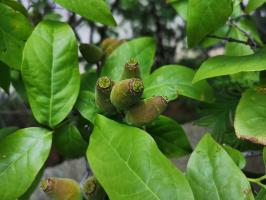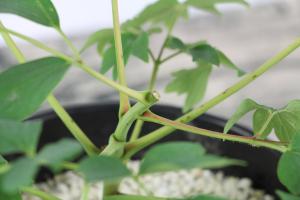How to Eliminate Plant Bugs Naturally
H2: Introduction
Plant bugs can be a major nuisance for gardeners and can cause damage to plants. Using chemical pesticides to eliminate them isn't a healthy or sustainable option. However, there are natural ways to control plant bugs which are effective and environmentally friendly.
H2: Identifying Plant Bugs
Before you start thinking about how to eliminate plant bugs naturally, it's important to know what kind of bugs you are dealing with. There are different varieties of plant bugs that attack plants, including aphids, mites, mealybugs, and white flies. The symptoms of plant bug infestations include holes in leaves, stunted growth, deformed fruit or foliage, and an overall weakened appearance of the plant itself.
H2: Methods to Eliminate Plant Bugs Naturally
1. Neem Oil: Neem oil is a natural insecticide derived from the neem tree. It is effective in controlling a wide range of pests including plant bugs, aphids, mites, and whiteflies. Simply mix neem oil with water in a spray bottle and target the affected plant. Reapply every two weeks to maintain control.
2. Insecticidal Soap: Insecticidal soap is an all-natural insecticide that can be sprayed directly onto bugs. The soap works by breaking down the bug's protective coating and dehydrating it. Insecticidal soap is effective in controlling aphids, mealybugs, spider mites, and whiteflies.
3. Companion Planting: Companion planting is an age-old practice that involves growing plants that help protect other plants from pests. Some plants emit odors that repel bugs while others attract beneficial insects that naturally control pests. For example, marigolds attract ladybugs which are known predators of aphids.
4. Diatomaceous Earth: Diatomaceous earth is a natural and organic way to control plant bugs. It is a type of rock that is ground into a powder and is safe for humans and pets but deadly for insects. It works by drying out the exoskeleton of bugs and destroying their digestive systems. Simply sprinkle the powder onto the affected plant and surrounding soil.
H2: Prevention is Key
Preventing plant bugs is much easier than controlling them. There are a few things that you can do to prevent infestations in the first place. These include:
1. Regularly inspecting your plants for signs of pests.
2. Providing your plants with the proper care, including watering, fertilizing, and pruning.
3. Maintaining a clean garden by removing dead leaves and debris.
4. Encouraging beneficial insects such as ladybugs and lacewings by planting flowers that attract them.
H2: Conclusion
Plant bugs can be stressful for gardeners, but by using natural methods, you can control and eliminate them without harming the environment. Always identify the type of plant bug you are dealing with before implementing control measures, and remember that prevention is key to a healthy garden.

 how many times do yo...
how many times do yo... how many planted tre...
how many planted tre... how many pine trees ...
how many pine trees ... how many pecan trees...
how many pecan trees... how many plants comp...
how many plants comp... how many plants can ...
how many plants can ... how many plants and ...
how many plants and ... how many pepper plan...
how many pepper plan...






























